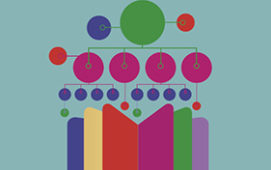A report published by the U.K. government says that there is no evidence that high frequency trading leads to increased volatility, which is a key driver of market data rates.
The report – The Future of Computer Trading in Financial Markets – by the U.K. government’s Office for Science – which is not a regulator – finds “Economic research thus far provides no direct evidence that high frequency computer based trading has increased volatility.”
The report does however conclude:
“However, in specific circumstances, a key type of mechanism can lead to significant instability in financial markets with computer based trading (CBT): self-reinforcing feedback loops (the effect of a small change looping back on itself and triggering a bigger change, which again loops back and so on) within well-intentioned management and control processes can amplify internal risks and lead to undesired interactions and outcomes.
The feedback loops can involve risk-management systems, and can be driven by changes in market volume or volatility, by market news, and by delays in distributing reference data.
A second cause of instability is social: a process known as normalisation of deviance, where unexpected and risky events come to be seen as ever more normal (e.g. extremely rapid crashes), until a disaster occurs.”
The full report can be downloaded here.
Regulators in several European countries, and the U.S., are investigating HFT and the role it plays in the financial markets, and are considering ways to curb it. At the same time, general conditions in the equities markets has made HFT a less profitable strategy, causing some trading firms to look to introduce it to other asset classes (in less regulated markets).
Subscribe to our newsletter





